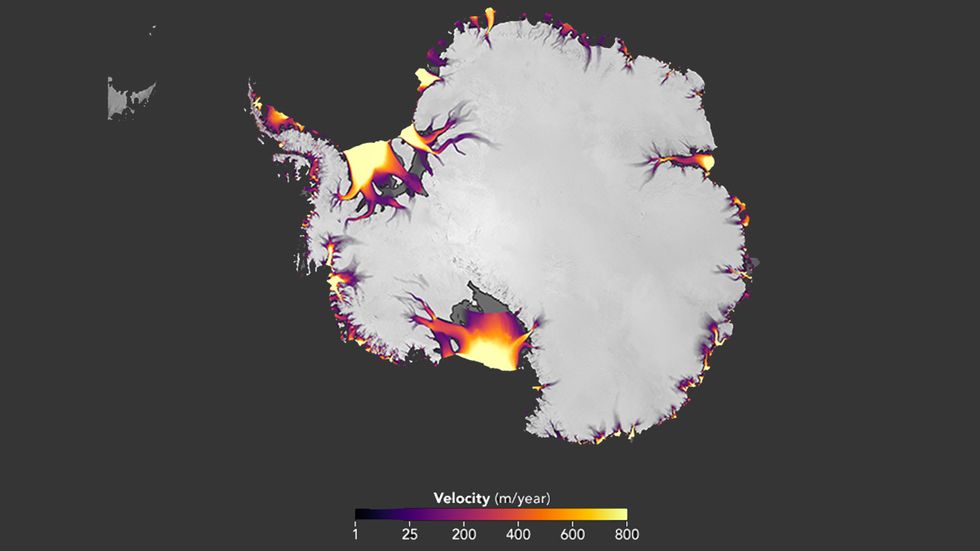It's summer. Many of us would like nothing more than to sit back and relax with a cool, icy drink in hand, preferably with more ice. Oh, no. You left your drink outside and now the ice has melted. Frustrating, right? Sure. As someone who prefers colder climates, I understand. But while tragic, the ice melting in your drink is nothing compared to the ice melting on the once-entirely-frozen continent of Antartica.
An international group of Antarctic experts published updated results - titled "Ice Sheet Mass Balance Inter-Comparison Exercise" - on Antarctic ice mass changes in the journal Nature on Wednesday. Isabella Velicogna, an author on the paper from the University of California at Irvine, explained that the researchers "took all the estimates across all the different techniques, and got this consensus".
From 1992 until the present day, the Antarctic ice sheet has lost 3 trillion tons (the equivalent of roughly 192,000 trillion ice cubes). This translates to about 8 millimeters of global sea level rise. If that's not hitting close enough to home, about 40% of that loss has occurred in the past 5 years.
West Antarctica is more unstable than East Antarctica due to an influx of warmer waters, which upsets two of its largest glaciers, Pine Island and Thwaites. The concern is that these glaciers are so large that if they continue to melt as they are doing so now - at a faster rate than any other glaciers in the world - they could effectively form a new sea.
Ice loss in Antarctica has tripled in the last decade, another bleak finding from the study. But, it's not yet as bad as it could potentially be. While it's unclear if ice loss rates are going to continue to triple, speed up, or slow down, we haven't quite reached the tipping point where absolutely nothing can be done and coastal communities will become engulfed by the sea.
Worst-case scenarios currently project sea levels rising over a centimeter a year (catastrophe). We're currently facing about half a millimeter of sea level rise per year (bad, but not catastrophic). However, it's worth mentioning that thanks to geography, because West Antarctica is predominantly the site of sea level rise means the effects will be worse for coastal cities in the USA.
Whether or not we reach catastrophe depends on the choices we make today. It's not just me saying this - Rob DeConto, an Antarctic expert at UMass Amherst, talks about this! Let's take steps to ensure that we never reach the tipping point of global sea level rise.

















